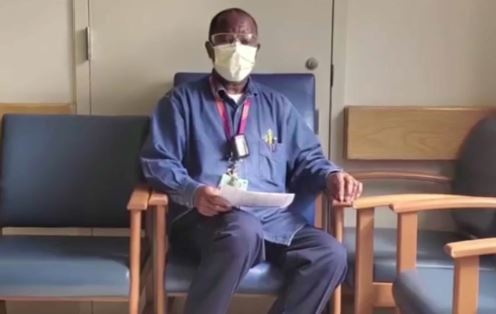Close to 1 million Massachusetts workers have sought unemployment benefits since most of public life shuttered in mid-March to limit transmission of the highly infectious COVID-19, according to new data published Thursday.
Food and accommodation workers have filed more ongoing claims for unemployment insurance in Massachusetts than any other industry since the COVID-19 pandemic began.
Between March 15 and May 2, state labor officials received nearly 780,000 applications for standard unemployment insurance. Another 185,000 claimants have sought aid through the Pandemic Unemployment Assistance program — created by Congress to extend eligibility to gig workers, self-employed workers and others who do not qualify for traditional unemployment insurance — since it launched in Massachusetts on April 20.
Cumulative standard and expanded claims together total about 960,000 in Massachusetts since March 15, based on the latest figures unveiled Thursday, representing more than one quarter of the state's entire labor force.
More details will emerge about the overall job losses stemming from the pandemic on Friday, when federal officials release national unemployment rate figures for the month of April. Massachusetts will publish similar state-level data on May 22.
Last week, Pioneer Institute researcher Greg Sullivan estimated that about one in four Massachusetts workers have lost jobs because of the business closures and economic downturn brought on by the pandemic. That number may have been pushed even higher with Thursday's update.
Both the 55,000-plus applications filed at the state level and the 3.17 million nationally were the lowest one-week totals since the week ending March 21, which was the first span where the outbreak's devastating impact on employment became clear. However, both state and national weekly claims were once again several times higher than any pre-pandemic levels observed.
The rapidity with which the spike in need emerged is also unprecedented.
Over the past seven weeks, about 33.4 million Americans have filed for unemployment. From the December 2007 start of the Great Recession, the cumulative total of new weekly claims did not reach 33.4 million until mid-April 2009 — a total of 73 weeks later — though not all of those applications reflected concurrent unemployment.
More on the Coronavirus Pandemic
In Massachusetts, the pandemic's economic impacts have been widespread but most acute for industries that rely on tourism and in-person consumers. The food and accommodation industry had the most ongoing claims, reflecting workers who sought more than one week of benefits, followed by retail trade and then health care and social assistance, according to state data covering the week ending May 2.
Non-essential businesses have been closed since March 24. Massachusetts has not moved as quickly as some other states to loosen restrictions, but some modifications have been made to open things up and larger changes seem on the horizon with a panel set to submit by May 18 recommendations for a phased reopening.
Gov. Charlie Baker said Wednesday that trends are positive in Massachusetts, but that underlying data does not support a quick, widespread reopening. More than 4,400 residents have died from COVID-19, and new cases reported daily are still ranging between 1,000 and 2,000.
The state Executive Office of Labor and Workforce Development said last week that, between March 15 and April 25, it had paid more than $2.3 billion in benefits to nearly 700,000 recipients. Officials did not provide an updated estimate with Thursday's release of another week's data.
Massachusetts's unemployment insurance trust fund used to cover those costs dropped from a balance of $1.63 billion on March 1 to $748 million on April 16, according to U.S. Treasury data. A Wall Street Journal report described that as the largest decline among all states.
To help stave off the fund's depletion — which a Tax Foundation report warned last week is imminent — Baker last month requested federal loans to cover $900 million of unemployment benefits in May and $300 million in June. His administration has not indicated if the application was successful.



